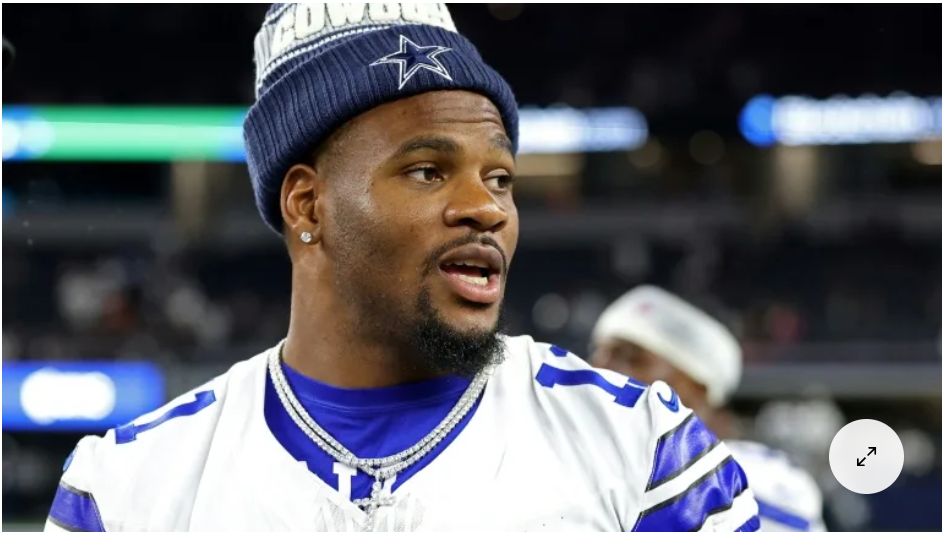Sports
Micah Parsons’ Blockbuster Trade: A Turning Point for Cowboys and Packers
1. The Trade That Shook the NFL Landscape
In one of the most dramatic moves in recent NFL history, the Dallas Cowboys have traded Micah Parsons, their superstar pass rusher and the face of their defense, to the Green Bay Packers. This trade not only shifts the balance of power in the NFC but also signals a major shift in how both franchises envision their immediate futures.
The roots of this move lie in a prolonged and highly public contract dispute. Micah Parsons, entering his prime as one of the most disruptive defensive players in football, was seeking a record-setting contract. Negotiations became tense when disagreements over representation and contract structure created friction. On August 1, Micah Parsons formally requested a trade after talks collapsed. Just weeks later, the Cowboys agreed to a blockbuster deal with the Packers.
In exchange for Micah Parsons, the Packers sent two first-round draft picks (2026 and 2027) and Pro Bowl defensive tackle Kenny Clark to Dallas. Almost immediately, Green Bay signed Micah Parsons to a record-setting four-year, $188 million contract extension, including $136 million guaranteed. At nearly $47 million annually, Micah Parsons became the highest-paid non-quarterback in NFL history.
The shockwaves were immediate. Dallas fans were stunned to see their defensive cornerstone leave, while Packers supporters celebrated the acquisition of a generational talent. Analysts quickly labeled the deal one of the biggest trades of the decade, one that could define the trajectories of both franchises for years to come.

2. Dallas Cowboys: Losing the Defensive Anchor
For Dallas, trading Micah Parsons marks the end of what seemed destined to be a historic partnership. Drafted in the first round in 2021, Micah Parsons instantly transformed the Cowboys’ defense. His rookie season earned him Defensive Rookie of the Year honors, and he followed it up with consecutive All-Pro selections and four straight Pro Bowl appearances. With relentless speed, versatility, and football IQ, he terrorized quarterbacks and disrupted offenses weekly.
Cowboys owner Jerry Jones framed the trade as a strategic decision. He emphasized that Dallas had long struggled with playoff success despite individual star power, and claimed the move was made to build a more complete team. By bringing in Kenny Clark and acquiring two first-round picks, the Cowboys aim to address long-standing deficiencies in run defense while also preparing for the future.
Still, the loss is undeniable. Micah Parsons wasn’t just a dominant pass rusher—he was a culture-setter, a tone-definer, and one of the rare players capable of swinging games on his own. Without him, the Cowboys’ pass rush now relies on a rotation of less proven players. While Dante Fowler Jr., Sam Williams, and Marshawn Kneeland bring flashes of talent, none command the fear or respect Parsons did. Opposing offenses will no longer be forced to scheme around Dallas’s most explosive defender.
For fans, the move stings even more because it came not from a decline in performance but from contract disagreements. Many will wonder whether the Cowboys should have bent further to keep their superstar. Instead, Dallas opted for long-term flexibility at the cost of short-term dominance.
3. Green Bay Packers: Going All-In for a Defensive Anchor
For the Packers, the acquisition of Micah Parsons is nothing short of transformational. Green Bay has long prided itself on steady roster-building, but this trade signals a rare, aggressive gamble. General manager Brian Gutekunst made it clear that the team was willing to mortgage part of its future to secure one of the league’s most disruptive defenders.
The timing makes sense. The Packers have a young, ascending offense led by quarterback Jordan Love, but their defense lagged behind in recent years. While they boasted respectable sack totals, they struggled with consistency in pressuring quarterbacks across all four quarters. Adding Micah Parsons immediately addresses that issue. His presence alongside players like Rashan Gary and Devonte Wyatt creates a front seven that could rank among the most formidable in the NFL.
For Micah Parsons himself, the fit is ideal. The Packers’ defensive scheme allows for flexibility, giving him opportunities to rush from multiple angles, drop into coverage when needed, and wreak havoc in creative ways. Green Bay’s investment—both in draft capital and financial resources—shows they view him not just as an addition but as the centerpiece of their defensive future.
The city of Green Bay, known for its passionate fanbase, has already embraced Micah Parsons as a potential defensive hero in the mold of past legends. Comparisons to Reggie White, who similarly transformed the Packers’ defense when he arrived in the 1990s, have already begun. If Parsons delivers as expected, this trade could be remembered as the move that catapulted Green Bay back into perennial Super Bowl contention.
4. A Rivalry Rekindled: The Cowboys-Packers Showdown Ahead
The Cowboys and Packers share one of the NFL’s most storied rivalries, with decades of iconic clashes—from the Ice Bowl of the 1960s to memorable playoff duels in the 1990s and beyond. The Parsons trade now adds a new, dramatic chapter to this history.
The NFL schedule makers could not have scripted it better: in Week 4, Parsons will return to Dallas as a member of the Packers in a primetime Sunday Night Football matchup. The emotional stakes of that game are enormous. Parsons will face the teammates and coaches he once called family, while Cowboys fans will see their former star wearing green and gold. The reception promises to be electric, with equal parts gratitude for his contributions and bitterness over his departure.
The storyline extends beyond emotion. On the field, this game will test the Cowboys’ ability to adapt without Parsons. Can their new defensive front generate pressure and stop the run effectively? Conversely, will Parsons introduce himself to Packers fans with a dominant performance against his former team? Every play will be scrutinized, every sack or missed opportunity magnified.
The trade also reignites debates among fans and analysts over who “won” the deal. If Parsons dominates for Green Bay while Dallas struggles defensively, critics will question the Cowboys’ decision. If Dallas turns its draft capital into foundational pieces and Green Bay struggles under the weight of Parsons’ contract, the narrative may flip. Either way, the rivalry has been supercharged in a way that will keep fans buzzing for years to come.
5. Long-Term Impacts: Draft Capital, Cap Space, and Legacy
Beyond the immediate excitement, this trade carries long-term ramifications for both franchises.
For the Cowboys, the benefits lie in flexibility. The two first-round picks give them valuable assets to rebuild or trade strategically. Dallas has historically thrived when investing in the draft, and these new picks could provide the foundation for their next great team. Financially, avoiding Parsons’ record-breaking contract also gives the team more breathing room to address other roster needs, whether reinforcing the offensive line, extending young offensive stars, or pursuing future free agents.
Yet the risk is just as clear: talent of Parsons’ caliber doesn’t come around often. Draft picks are gambles, and there is no guarantee that Dallas will find a player anywhere near his level. If the Cowboys stumble in the draft or fail to turn flexibility into production, this trade could haunt them for years.
For the Packers, the calculus is more straightforward. They have secured a proven superstar in his prime, but at enormous cost. Parsons’ contract eats a massive portion of the salary cap, potentially limiting future roster moves. If he maintains his dominance, the gamble will be worth it—Parsons could anchor the defense for the next half-decade and elevate Green Bay to championship contention. But if injuries or decline strike, the Packers could find themselves saddled with an albatross contract and depleted draft resources.
Ultimately, the Parsons trade underscores the volatile nature of NFL roster building. It reflects the constant balancing act between present competitiveness and future planning. For Dallas, the move is about building tomorrow. For Green Bay, it’s about winning today.
From: Candourroyaltees
